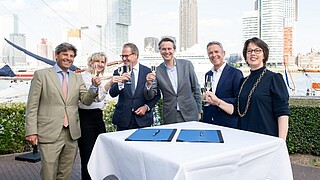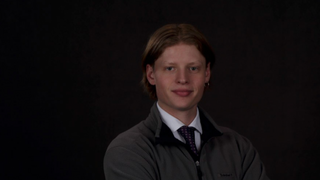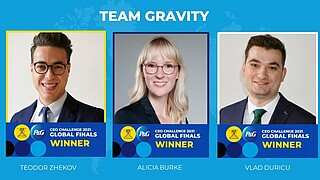Energy transition without subsidy
Subsidies play a key role in the energy transition currently, but in the long term these subsidies are not sustainable. Bertels, who completed RSM’s MSc Global Business and Sustainability in 2021, researched how subsidies on solar panels in the Netherlands can be reduced. He made a comparison with the United Kingdom and Spain, which have already significantly reduced their subsidies. The main lesson he draws from this research is that the transition must be done in a proper way. Yet there are also differences between the countries. Bertels explains: "For example, the higher electricity price in the UK provides more room for corporate deals to emerge, where there is currently less negotiating room for Dutch solar developers to tap into such solutions."
Impact on career
During his studies, Lukas gave masterclasses at secondary schools on the energy transition. "I wanted to bring the energy transition and the theme of sustainability to the attention of young people. Thanks to this prize, the theme also gets a lot of visibility. That can only benefit the world," he says. After his studies, he hopes to work for a company specialising in sustainability.
Lukas is now pursuing a second master degree at Bocconi University in Milan. He wrote the thesis as part of his internship at Solarfields during his master studies at RSM. His thesis supervisors Dr Taslim Alade and Professor Lucas Meijs had nominated Bertels for the Hermes Circle London Thesis Award.
The Hermes Circle London Fund
The Hermes Circle London Fund is a fund of the Erasmus Trust Fund. The annual Hermes Circle London Thesis Prize of €1,000 is awarded to outstanding theses that address the relationship between the United Kingdom and the Netherlands by exploring economic, financial and legal issues. Hermes Circle London consists of former members of the Rotterdamsch Studenten Corps (RSC) based in the United Kingdom. Bertels received the award from Dick van den Broek and Hugo Ruys, of the Hermes Circle London Fund.





